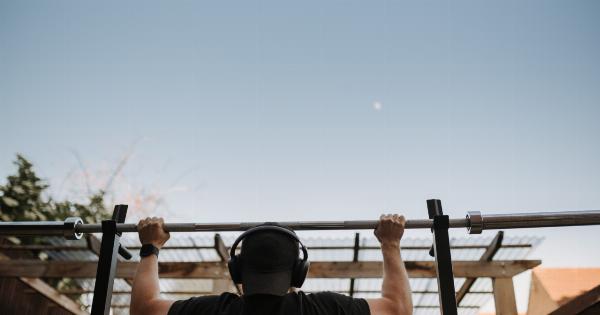Working out with music is not a new concept, but it has certainly evolved over the years. While some prefer to have a mellow playlist during their exercise routine, others like it loud and heavy.
Listening to music while exercising not only makes it more enjoyable, but studies have shown that it can also improve performance. Here are some reasons why you should consider getting fit with noise:.
The Benefits of Music During Exercise
When done properly, listening to music while exercising can have countless benefits. One of the most significant benefits of music during exercise is its ability to improve performance.
Music can distract the brain from focusing on the physical discomforts of exercise, allowing you to extend your workout by a few more reps or minutes.
Another benefit is that music can help with synchronization. The beating of a song can serve as a metronome for your body, making it easier to maintain a steady pace. It can also reduce stress and anxiety, leading to a more enjoyable workout experience.
Why Volume Matters
While exercising with music can be beneficial in itself, getting fit with noise can be equally, if not more, rewarding. The volume of the music you are listening to can have a significant effect on your workout.
A loud and heavy playlist can trigger a fight or flight response in your body, releasing adrenaline and making your workout more intense.
Similarly, loud music can also serve as a reminder to keep pushing yourself. When the volume is up, you tend to get lost in the music, making you forget about the discomfort of exercising and motivating you to keep going.
The Best Genres of Music for Exercise
When it comes to exercising with music, the genre you choose can make all the difference. Different genres of music have different beats and rhythms, which can affect your workout in various ways. Here are some of the best genres of music for exercising:.
Rock or Heavy Metal
Rock or heavy metal music is known for being loud and heavy. The energy in the music can be motivating and can stimulate you to push yourself harder during your workout.
It is especially useful when doing activities like weightlifting or high-intensity interval training (HIIT).
Pop
Pop music is ideal for cardio workouts. The beats of pop songs are often similar to the pace of running or cycling, making it easier to maintain a steady rhythm.
Pop music is also high-energy, making it perfect for keeping you motivated throughout your workout.
Hip Hop or Rap
Hip hop or rap music is another genre that can get your heart rate up and keep you motivated during exercise.
The beats of these songs are often slower than pop or rock music, making it ideal for activities that require a slower pace, like yoga or stretching.
What to Consider When Exercising with Loud Music
While exercising with loud music can be exhilarating, there are some things you need to consider to protect your hearing. Listening to music at a high volume for an extended period can lead to hearing loss.
Here are some things you can do to avoid damaging your hearing:.
Invest in Quality Headphones
Investing in quality headphones can help reduce the risk of hearing loss. Look for headphones that can block out external noise, allowing you to listen to music at a lower volume.
Over-ear headphones are also a better choice than earbuds, as they create less pressure on your eardrums.
Limit the Volume
It is recommended that you keep the volume no louder than 60% of maximum volume capacity. This can vary depending on the type of headphones you have, but in general, if you can’t hear anything else around you, it’s too loud.
Take Breaks
It’s essential to take breaks from loud noise to give your ears a chance to recover. After a 30-minute workout, take a five-minute break and remove your headphones. This will give your ears a chance to rest and recover.
Conclusion
In conclusion, getting fit with noise can be an enjoyable and beneficial way to exercise. Investing in quality headphones, limiting the volume, and taking breaks can help you avoid hearing loss and protect your most precious asset, your hearing.






























